Farooq Kperogi is a US-based Nigerian academic and columnist. I quite enjoy reading him. Years ago, someone took a column he wrote and copyrighted me on it. I could not fathom the motive but I kept explaining to all who asked that it was not written by me. Each correction of the impression made me feel like a man rejecting a pregnancy being hung on him by a lady he was sure he had never met.
When, a year ago, Peter Obi called me to get permission to attribute something from the article, I felt compelled to call Farooq to either begin paying me for clarifying the matter or to hire his own PR people.
Join our WhatsApp ChannelAs the conversation on the many fake stories about me, attributed to me or ostensibly by me, got to one particularly widely circulated piece, he was shocked that the story was fake. It made the point that even the best of us can miss the tell-tale signs in fake stories.
A close look at that story would show that, in parts, it was like reporting what I said in the third person and another part was written like I was writing a feature or opinion essay. The fakers are often in a hurry to cut and paste. Still, most people missed that inconsistency.
I once ran a workshop on fake news and pointed out that most of the stories deliberately skip some elements of the news style, the 5Ws and H. Who said what, where when, why and how? The cub reporter is schooled to capture these elements and where possible, sum them up in the introductory paragraph called the lead.
Such is it that how many in public life may be seen can be based on falsehoods, nowhere near the reality of who they are. Achieving name recognition can prove to be a burden as some either try to use it for their own gain or malign it out of envy.
Jimmy Cliff, the Reggae star from Jamaica who was arrested in Nigeria on a concert tour in the early 1970s made a record on the experience that was titled: ”Have you heard the news.”
In the song, he lamented that he went to Africa, ‘down in Nigeria ‘ but they threw me in jail. Cause I got little fame.’
A little fame can generate fake news and malicious gossip, lacking in factual basis.
When, two years ago, the BBC organized a conference on Fake News in Abuja, I came in seething in anger to tell this story of how people commit murder by deliberately tainting the good name of others. That was until Professor Wole Soyinka spoke, illustrating his predicament with evidence of false attributions and fake quotes attached to his name. At that point, I decided I could not justify feeling so bad for my own more limited abuse. I should be thankful, I thought then, and stay with the philosophy that truth and light invariably overcome lies and darkness.
But why do people do these things which scripture in the Judeo-Christian tradition considers murder, the deliberate damage of the reputation of another?
I recently gave a talk in the United States on freedom of expression and used my experience to discuss the subject: Years before, I had been part of a US International Visitors programme, along with Shehu Sani and Abike Dabiri, which had Freedom of Expression as the theme. In response to presentations, I had joked about my recollections of the Fairness Doctrine which the US Federal Communications Commission used as policy in the 1970s. It required that people who have been commented on get a right to reply to disputed viewpoints.
What this translated to was that graduate students like myself returning from the Library after midnight in the 1970s were treated to a series of right to reply clips as the stations kept those replies to what they broadcast at prime time, to midnight, when those who watched the original stories were asleep. You can imagine that those of us coming home late were denied good TV viewing and bored to sleep with the drab replies.
We were therefore relieved by the Reagan Administration era abrogation of the Fairness doctrine. I bought into the mantra that truth eventually always overcomes falsehood even if the falsehood persists for a long time.
The truth is that, when falsehood lingers, the issue is more about those who believe them than even those who created the lie. I found that thinking valid even in my experience, as I told the group I spoke to in Atlanta this week.
In four books, three of a biographical nature; To Serve is to Live (1996. 2000) , Business Angel as a Missionary – Reflections of an Economic Growth Activist(2009); Why Not -Citizenship, State Capture, Creeping Fascism, and Criminal Hijack of Politics in Nigeria( 2019 and 2021) and a case study in a Management book with case studies; Managing Uncertainty- Competition and Strategy in Emerging Economies(1998) I have provided more than adequate feedstock to dismiss innuendos from s particular run of Fake news regarding a part of my career but ordinarily intelligent people still raise it from time to time.
To refer to such suggests either the person cannot read, didn’t want to read or enjoys the primitive instinct of finding faults in others, just like gossiping housewives with inferiority complex do, so they can feel those who appear better of are not as sparkling.
That subject relates to the eight spectacular years I spent as one of the youngest major corporate executives in the industry in Nigeria.
I even cynically suggested to one journalist who once asked me ‘What about Volkswagen?’ that I could give him a hundred real faults and failings on which he could get me rather than innuendo that would make him look foolish before any well-informed person.
So, what about Volkswagen? I asked him. Sure I worked there for eight years. Did he hear a kobo went missing while I was there? Did he hear of a decision that was made while I was there that negatively affected its fortunes? He stared like a moron. I sweetened my offering. If he could find one thing he would have done better on my watch there; even theoretically, I was ready to put down N10 million for him to collect. He could only stare sheepishly like a Zombie.
That innuendo is similar to one that $2.8 billion was missing from NNPC accounts when the current President was a Minister in Petroleum. When asked how they got the information, a well-known person said he heard it on a bus ride.
So what about Volkswagen? Volkswagen of Nigeria was one of five JV automobile Import Substitution Assembly plants. It was the less commercially favoured because it made the common man’s car, the Beetle, than the ones that received government patronage for official cars. All of the plants, favoured and not so favoured went moribund under SAP a few years after I left the service of the company.
I have never heard of a PAN or Fiat/Iveco, ANAMCO or Steyr or Leyland executive asked: What about the company?
To be sure, there were three CEOs, two Germans, and one Nigerian, after I quit. So why would the fact that the factory stopped production be the fault of the man who left long before even though the fate lamented befell all the plants and many other private and public manufacturing ventures? That these happened after I left without being pushed does not really matter.
I left because I said my 38th would not be spent on the job. And I said so the day I was named Deputy Managing Director.
Even with baseless innuendo being the basis of repeated murder by people who ordinarily see themselves as decent people I still believe that fake news should not be managed with draconian legislation.
I once told a story on a WhatsApp platform of how an elder I held in high regard told me that some friends of mine complained to him I was ‘’eating alone’ shortly after I left the VW position. At that time I had been living in Dolphin Estate after I left company property, without a generator. I had been rationalizing it to be the result of a disposition in favour of the environment. In truth, I could not afford a 17.5kva generator. I then approached a finance company for a lease/ purchase arrangement.
The MD of the finance company first thought I was joking but when he found I really could not put down the full amount, he had them deliver the generator to the house. When I asked for the paper, he politely said he would pay for the generator himself. On that same day, I was hearing of chopping alone from those who presumed.
Interestingly, Alhaji Bamanga Tukur whom I had been quite friendly with for years, was appointed Minister of Industries, just after I resigned. He put much pressure on me to rescind my resignation. He insisted he needed me inside the industry to help his work as a minister. He was joined in the pressure by another family friend who was appointed Finance Minister Prince (later Oba) Oladele Olashore. I went to see Alhaji Bamanga to let him know the resignation was just a matter of principle.
When I was head-hunted to go to troubled and struggling VWoN, I had no interest in going there. I even recommended to the head hunters some other person. But the position remained unfilled for months. The late Mr Foluso Longe, who led the search team, eventually talked me into accepting the position to prove a professional point.
A drawer full of commendation letters from the German CEO attests to my stewardship. In his view, expressed in the European magazine, Manager Allays von Bothmer indicated the JV partners were ready to leave when I arrived. Two years later they encouraged me to apply for the Deputy MD position. Even though I was 32 years old, the advert for the position said applicants had to be more than 35 years old.
The Recruitment committee led by Dr Michael Omolayole recommended me as the top of the pack. Some of the Nigerians on the board thought I was too young, at 32 and others thought I came from the wrong part of the country. I guess the Germans persuaded them that my track record made light the sentimental issues.
To play down views that I would be there forever because I was 32 I began to make statements that I would not be in the company at 38. Suddenly, it was three months to my 38 birthday and I kept my word to myself by turning in my letter of resignation, to return to an academic career.
That write-up about my VW transition, according to one or two who spoke to me after they read the story, brought them to tears because it had become hard to believe such levels of integrity were possible in Nigeria.
Alhaji Bamanga who is alive and well, reluctantly accepted my insistence on my keeping my word with the resignation.
Worried about my finances and how I was going to survive as a teacher, got his then Secretary, Mrs Funmi Sanusi, to send me some of his own money to help with the transition.
I told these stories to my American audience partly to help them understand the new tribalism in America and how emotion contests the space with reason, relying on fake news to typecast opponents in spite of all the evidence.
We can live with fake news and wicked assault on the character of others by the slothful ever willing to believe the worst in others. Light invariably shatters darkness…
Patrick Okedinachi Utomi, Political Economist and Professor of Entrepreneurship, is the founder of the Centre for Values in Leadership. He is also the Chairman, Editorial Board of Prime Business Africa.
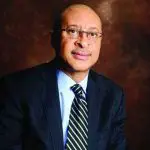

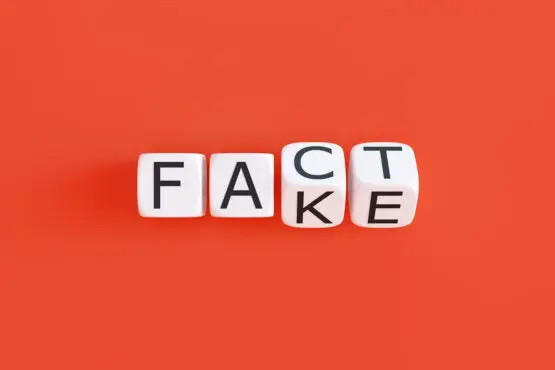




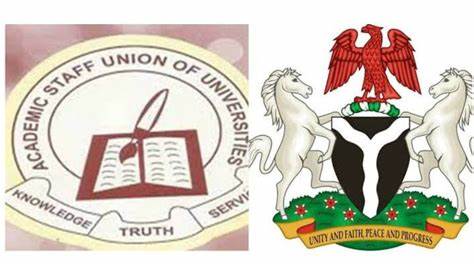









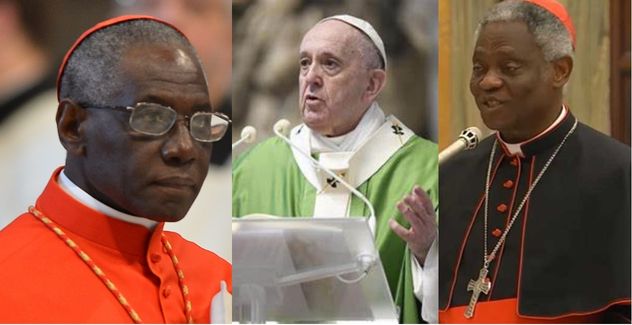
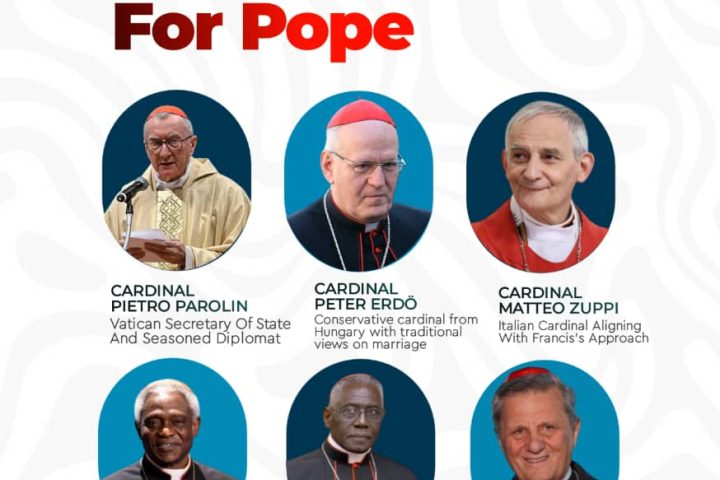

Ever a delight to read Prof Pat Utomi and learn some new things and new stories around the moral principles he’s built his life on.
On the matter of fake news, especially in this social media age, I’m of the view that we shouldn’t just live with it. The world urgently needs to have a UN conference to define the problem and decide a common approach to dealing with it. Fake news, spread through social media, has the potential to ignite a Third World War. The world needs to act now in order to never allow that to happen.